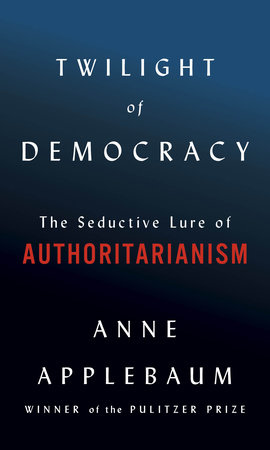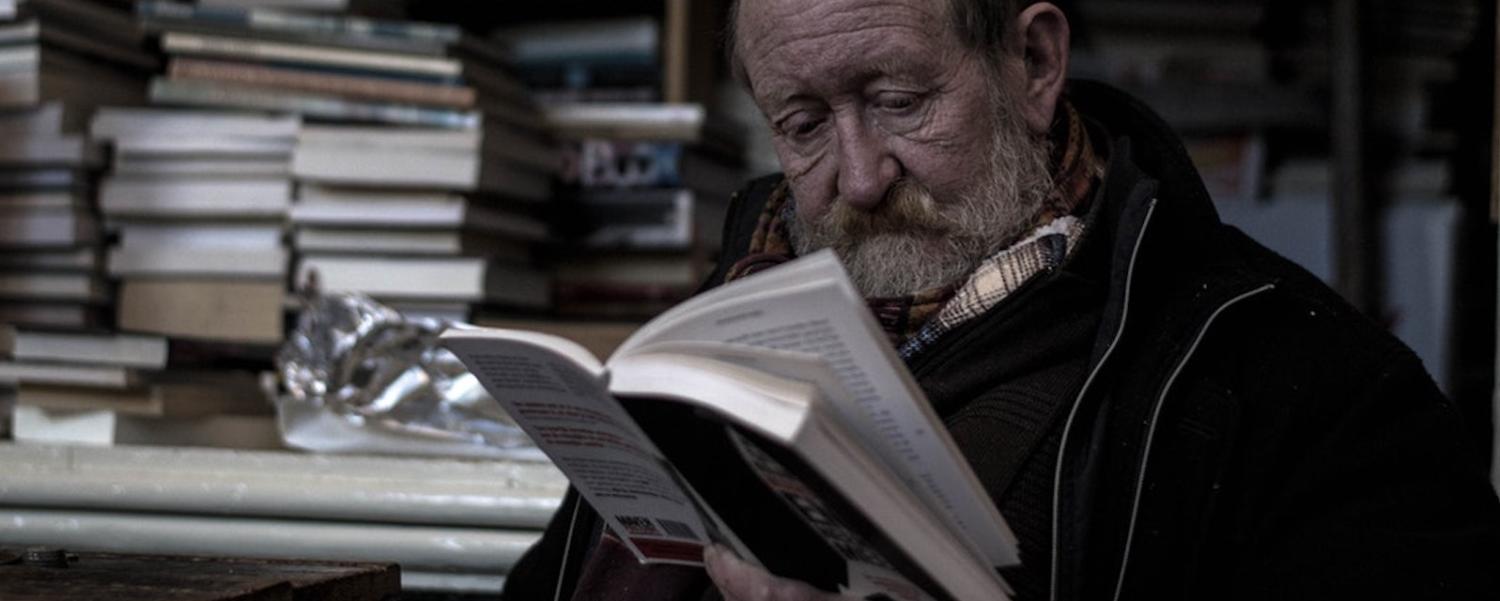Book review: Anne Applebaum, Twilight of Democracy: The Seductive Lure of Authoritarianism (Doubleday 2020)
 If democracy is the guiding light of a civilised world, wherefore that world if the light is flickering? This is the premise of Anne Applebaum’s Twilight of Democracy. And as the title suggests, it is not a given that the progression of humankind is ever onwards and upwards. If history has taught anyone anything, as Applebaum notes, it is that a certain path is not guaranteed. What was once considered a detour or a side route through a dark forest in a nation’s life may end up being the main arterial road of its citizenry before they even know.
If democracy is the guiding light of a civilised world, wherefore that world if the light is flickering? This is the premise of Anne Applebaum’s Twilight of Democracy. And as the title suggests, it is not a given that the progression of humankind is ever onwards and upwards. If history has taught anyone anything, as Applebaum notes, it is that a certain path is not guaranteed. What was once considered a detour or a side route through a dark forest in a nation’s life may end up being the main arterial road of its citizenry before they even know.
This book arose from an article from an article Applebaum wrote in 2018 for The Atlantic magazine entitled “A warning from Europe”. Before moving to The Atlantic, she was a writer on the Washington Post for almost two decades. Her book Gulag won a Pulitzer Prize. She lives in Poland with her husband Radek Sikorski, who at the time of the introductory set piece to the book was deputy foreign minister in the Polish government. She begins by recalling a New Year’s Eve party in 1999 she and her husband had thrown to welcome in the new year and what many believed would be a new era. As Applebaum writes, the political is also the personal. Of those who attended, there were many now she would not cross to the street to greet, and she says, vice versa.
Unlike her previous works, which include Red Famine, Iron Curtain and Gulag, Twilight is the most personal. It is forensic and humane.
Fifty-five years ago, Bob Dylan sang in “Ballad of a Thin Man” that “something is happening here but you don’t know what it is”. Now something is happening in the politics of nations that is anti-politics. As a rivulet from the main discourse, Applebaum cites the leftist radicals the Weathermen, who took their name from a Dylan lyric “You don’t need a weatherman to know which way the wind is blowing”.
Appelbaum uses the term “clercs”, which French philosopher Julien Benda created in a merging of clerics and clerks, to help explain the rise of authoritarianism. In their efficiency was their zealotry. She examines Poland, Hungary, Spain, Britain and the United States. And in each case:
Something else is going on right now, something that is affecting very different democracies, with very different economics and very different demographics, all over the world.
How to gauge the health of democracy now is impossible if one uses the tools and examples of past eras. The game has changed beyond recognition, and while the nature of humans has not, the means of communication and ability to influence, and hence the methods of gaining and holding power, have.
Authoritarians do not rise without help, but what is perplexing in this time, as Appelbaum notes, is that the fertile ground from which despots rose before are not there: the economic conditions have not of themselves nourished revolution. There is no root cause, but many seeds.

One seed is nostalgia, which Appelbaum sees in two forms: reflective and restorative. In the mythic past is the beacon for the future. People fashion this urge to suit their own motives, thus false narratives evolve, and those after power nourish them, thus it doesn’t matter. This is a real fear for those interested in truth and democracy. Over time what really happened, and what is really happening, do not matter. If enough people believe it to be so, the authoritarian merely has to act as a director in the national film.
While Appelbaum traverses the recent histories of Hungary, Britain and Spain, where she meets the creator of the hugely successful Make Spain Great Again campaign, who thought it was just a joke, she ends with her homeland, the United States, and the rise of Donald Trump. She writes:
Trump has no knowledge of the American story and so cannot have faith in it. He has no understanding of or sympathy for the language of the founders, so he cannot be inspired by it. Since he doesn’t believe American democracy is good (witness his attack on mail voting), he has no interest in an America that aspires to be a model among nations.
As Appelbaum writes, Trump admires Putin. Trump attacks his country’s own institutions. Throughout his political career, he has made a virtue of tearing down. When he went to the White House, he declared he would “drain the swamp”. His supporters cheered him on. If he has a genius, it is to give succour to the “us” over “them”. Divide and conquer never rang so true.
Appelbaum does not offer a roadmap into the future where democracy’s light shines. History is circular. Enlightenment, tyranny, uprising, downfall. Is there a utopia? That, of course, relies on the better angels of our nature ascending.
